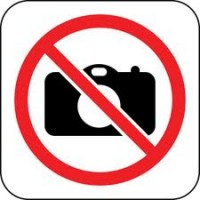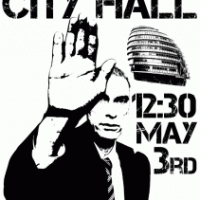
You’ve probably noticed that the Small Aperture crew is pretty passionate about photographers’ rights. Whether we’re promoting your ability to be able to photographs in public places, ranting about peculiar photographic restrictions, or explaining what sort of authority you can exert over your own images, we’re pretty vocal about things. That’s hardly surprising: we love to take photos. And I doubt we’ll keep quiet until other people, from the police to shopping mall security guards to the general public, really begin to grasp what photographers can and can’t do.
The good news is, though, that over the past week two separate incidents have occurred, albeit over 3,000 miles apart, which have helped to promote photographers’ rights that little bit more.
Edinburgh, Scotland
Last week, in Edinburgh, photographer Stefan Karpa was harassed by security officers while taking photos at the Multrees Walk shopping district. Security had been beefed up recently as a result of several “ram-raiding” robberies. And while Multrees Walk is a privately-owned street, Karpa was photographing from the public highway, which is completely within his rights to do.
Karpa then posted a video of the confrontation to YouTube, and after making its rounds on Twitter, the response was huge. A few days later, a small group of photographers decided to organise a flashmob at Multrees Walk to protest the incident. Police arrived and watched carefully, but the protest carried on peacefully.
Here’s the video to show you:
Photo Flash Mob on Edinburgh’s Multrees Walk from Tom Allan on Vimeo.
Later, Multrees Walk spokesman Stephen Spray stated that their blanket ban on photography would be reviewed. While not necessarily a legally-successful story, the fact that twenty photographers showed up to protest and photographed the store fronts on private property without being harassed by police and security shows that management is listening and perhaps willing to compromise with photographers.
New York City, USA
Meanwhile, across the Atlantic, photographer Antonio Musumeci reached a settlement with the U.S. Department of Homeland Security in regards to a lawsuit filed on his behalf. In 2009, Musumeci was arrested while filming another arrest of a protestor outside a New York City federal courthouse. The settlement states that members of the public have the “general right to photograph the exterior of federal courthouses from publicly accessible spaces.”
His primary camera had been confiscated at the time of his arrest, but a secondary camera captured the entire incident. Unlike many protesting photographers, Musumeci kept his cool the whole time, which I’m sure didn’t hurt his case.
While this is a more significant win for photographers than the Edinburgh case, both are equally important during this on-going clash for the right to shoot in public places. As more and more of these types of incidents end with favourable results, it’s only a matter of time before a compromise can be reached and photographers can continue to comfortably do what they do best… shoot pictures.







